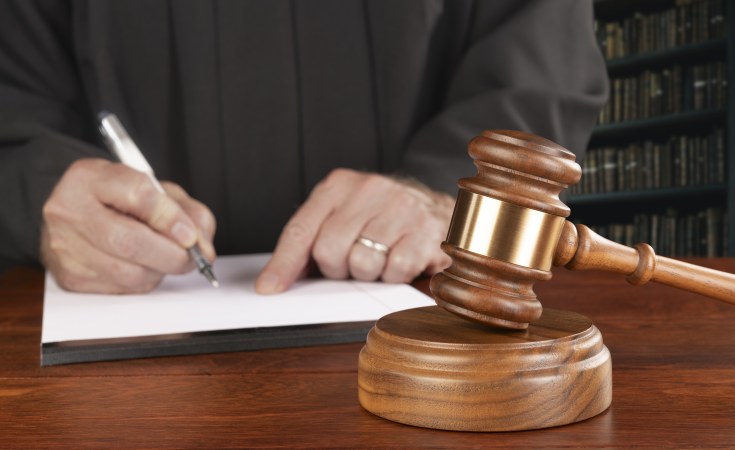Bellinzona, Switzerland — In a dramatic third day in former Liberian rebel commander Alieu Kosiah's appeal of his 2021 war crimes conviction, a plaintiff in the 2021 trial told the court he has been threatened, beaten and forced to flee his home because of his testimony.
"When I came back from the trial in 2021, I spoke with a relative who lives in Monrovia," the plaintiff, in his fifties, told the court. "She told me I had to leave because I was risking my life and my children's". He claimed that he had been beaten up in connection with his testimony and "had to live like a fugitive" since the conviction of the former ULIMO commander in June 2021.
When the judge asked the plaintiff if he regretted taking part in the trial, he answered quickly: "I've lost my cousin and my brother," he said. "I will not stay away from this opportunity because I want justice."
Kosiah, who fought with Ulimo against the rebel forces of then-warlord Charles Taylor, was convicted of 21 of 25 charges brought against him including rape, murder and cannibalism in Switzerland's first ever war crimes trial in June 2021. He was sentenced to the maximum sentence in Swiss law of 20 years in prison, minus six years he had served while awaiting the trial. Kosiah is now appealing that conviction.
The president of the court pointed to Kosiah's lack of repentance or remorse. Kosiah showed "cynicism and arrogance" during the trial and even sometimes "hostility" towards the witnesses, he said. The court reproached him for "adapting his story as the proceedings progressed". Kosiah denied all the charges insisting he was not in Lofa at the time of the crimes. The court found this argument "not very credible in the eyes of the court", which questioned the honesty of the defense witnesses and their "obviously prepared and oriented" accounts.
Under questioning from prosecutors the plaintiff repeated his accusation that he and six other men were taken by rebels under Alieu Kosiah's command from Foya Market in 1993. The seven had been accused of being fighters for Ulimo's rival faction, the National Patriotic Front of Liberia, led by warlord Charles Taylor.
"They said we were rebels. They did Tabe to us," said the man explaining that "Tabe" was a torture mother where a victim's elbows were tied behind their backs. He said the torture still had an impact on his health today and prevented him from lifting any loads.
"Alieu Kosiah decided that we were rebels. You either live or die, once they think that you're an enemy, but when you're Tabe, you're almost dead." The plaintiff described Kosiah's role in his suffering. "He gave the order to kill my brother and the other civilians. He was in charge."
He described seeing another man's head smashed with a rock. "His brain exploded. I was so afraid that I closed my eyes. I just heard people screaming to death. When I opened them, everybody was gone."
Remembering the events, the plaintiff started shaking and was so overcome the judge ordered a break. "Every time I think about my brother, I cry," he explained as court resumed. "He was killed in front of my eyes."
The man said the dead bodies were then thrown in a well that was later filled with soil to avoid flies. Challenged by Kosiah's lawyer Dimitri Gianoli to name the location of the well, the plaintiff said he would have no problem showing anyone where it was.
"On the following days, some civilians told me that the body had been thrown in a well. Even thirty years later, I know where it is even if the well is no longer there."
In 2021 during Kosiah's original war crimes trial the plaintiff testified about the well. He claimed that Kosiah and his accomplice, Kunti Kamara, were together when one of them stabbed him with their bayonet and then both left him for dead. Kamara was convicted in a war crimes trial in Paris in November for some of the same crimes with which Kosiah was found guilty. Today's plaintiff also testified to the same story in Kamara's trial.
During questions from the lead prosecutor the plaintiff told the court about a song many victims have described the Ulimo leaders singing. "I will never forget it. Alieu Kosiah and Kunti Kamara were singing it, it was the song they performed when they killed a man."
Wearing a green jacket and a white shirt, Alieu Kosiah regular talked with his lawyer, Gianoli, during the testimonies. He grinned frequently at in apparent disbelief at certain answers. Asked to respond to the allegations, he replied: "As I said since day one, I am innocent. I've never done anything of what these people accuse me of."
The appeal continues next week.
This story is a collaboration with New Narratives as part of the West Africa Justice Reporting Project.


